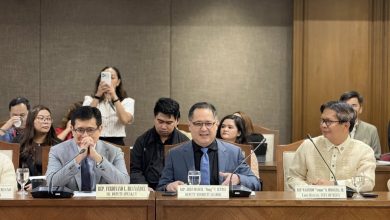Filipino workers may share more than a third of the 350,000 available jobs that Japan will open to foreign nationals with the effectivity next month of a law allowing new residence status to foreign workers.
Labor Secretary Silvestre Bello III said skilled Filipino workers are among the preferred nationals in Japan with the potential of cornering more than 100,000 in fresh job opening in the Asian neighbor.
“Our workers may get at least 30 percent of available jobs to foreign nationals,” Bello said.
To govern the deployment of “specified skilled workers,” a memorandum of cooperation is set for signing on Tuesday in Tokyo between the labor department and Japan’s Ministries of Justice, Foreign Affairs, Health, Labor and Welfare and the National Police Agency.
Bello said the cooperation agreement will not just provide better opportunities but also enhance protection for skilled Filipino workers for deployment to Japan.
“This agreement, aside from providing better opportunities, is geared toward ensuring their protection by means of implementing a basic framework that will promote smooth and proper mechanisms in sending, accepting, and residence management of incoming specified skilled workers in Japan,” he said.
As defined in the agreement, specified skilled workers are those who possess certain expertise and skills and granted the status of residence of “Specified Skilled Worker”, by the government of Japan.
Among the specified skills include those in health care, building maintenance, food services, industrial machinery, electronics, food manufacturing, agriculture, hospitality, construction, shipbuilding, fisheries and aquaculture, parts and tooling and aviation.
Under the agreement, the shared areas for cooperation are streamlining of recruitment processes; examining mechanisms on accepting and supporting organizations and a specified skilled worker; providing guidance and supervision in the implementation of the system; sharing of information; establishing of a joint committee for resolution of issues and continued improvement of the system; administering examinations; and promoting the welfare and protection of Filipino skilled workers.
Serving as the country’s contact points once the agreement is signed are the Philippine Overseas Employment Administration (POEA) for processing and accreditation; and Philippine Labor Overseas Labor Office (POLO) – Japan for verification of skilled workers’ documents, coordination onsite and welfare concerns.
The National Reintegration Center for OFWs (NRCO), on the other hand, will be responsible for the reintegration of returning specified skilled workers.



